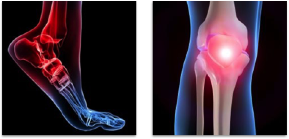
Jordi Sanchez-Ballester
FRCSEd FRCS Trauma & Orth
Consultant Foot, Ankle & Knee Surgeon
Fairfield Independent Hospital, St Helens
Spire Cheshire
Bone-Surgeon.co.uk
Fairfield Independent Hospital
Crank Rd
St Helens
Merseyside WA11 7RS
01744 739311
Spire Cheshire Hospital
Chris Davies
Fir Tree Close
Warrington WA4 4LU
0845 602 2500
Knee Arthroscopy - Non Arthritic
What Is Knee Arthroscopy?
Knee arthroscopy (also called keyhole surgery) is a procedure that allows the surgeon to look inside the joint and examine what is causing the problem. It can also be used to remove and repair damaged cartilage and/or remove fragments of loose bone or cartilage.
During the procedure a piece of equipment called an arthroscope is used. An arthroscope is a thin, flexible tube with optical fibers acting as a light and a camera. Images are sent from the arthroscope to a video screen for the surgeon to review the knee joint.
The surgeon will make a small incision next to the joint so that the arthroscope can be inserted. One or more small incisions will also be made to allow an examining probe or, if necessary, surgical instruments, to be inserted.
What are the Risks Associated with Knee Arthroscopy?
General anesthesia has small risks, you will be able to discuss these risks with your consultant and anesthetist.
Numbness around the small incisions.
Nerve or artery damage can occur during any repair work of the cartilage; this can cause numbness, pain in your leg or foot and weakness. This rarely happens.
Pain, bleeding and infection.
How soon will I recover?
It is common for the knee to be a little swollen for a few weeks following a knee arthroscopy. Walking can be uncomfortable. Regular exercise should help you to return to normal activities as soon as possible.
Before you start any exercise check with your physiotherapist (if applicable) or your GP for advice.
Most people make a good recovery and can return to normal activities. However, further cartilage tears occasionally happen following a knee arthroscopy.